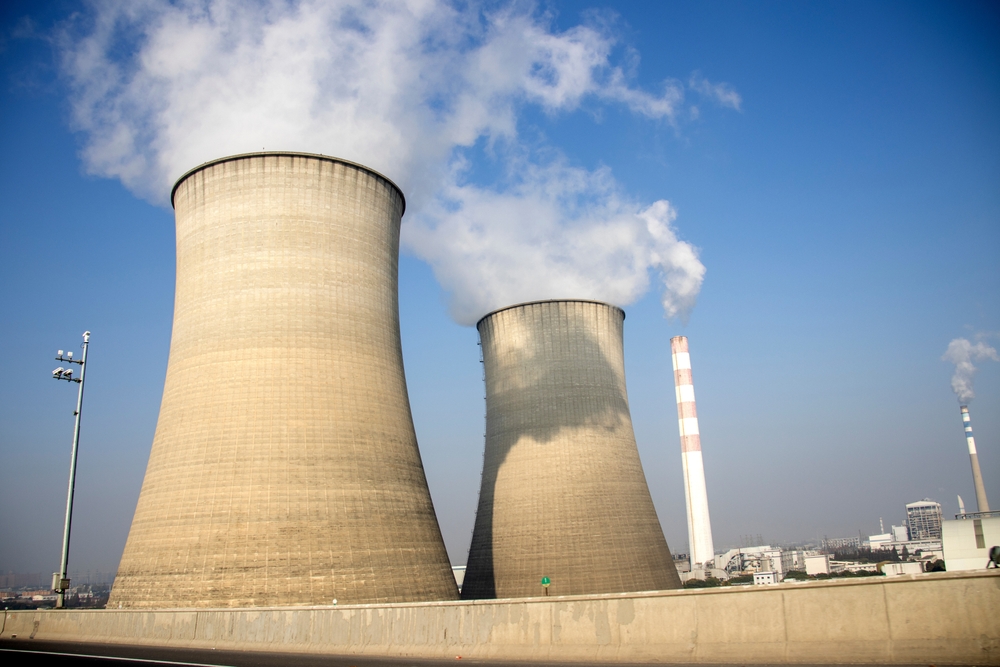Dr. William Bodel's Perspective on the Role of Nuclear Technology in the Low-Carbon Energy Transition
Innovations and Initiatives Innovations and InitiativesPosted by NewAdmin on 2025-01-31 09:21:10 |
Share: Facebook | Twitter | Whatsapp | Linkedin Visits: 20

Dr. William Bodel, a prominent researcher from the Dalton Nuclear Institute at the University of Manchester, has put forth a compelling argument regarding the critical role of advanced nuclear technology in supporting the generation of low-carbon hydrogen, an essential element in the low-carbon energy transition. According to Bodel, the primary scalable low-carbon energy sources currently available in the UK are wind, solar, and nuclear technology. However, in order to maintain energy security and grid stability, there is a need for a flexible backup system that can address the variability of renewable energy production, particularly when wind and solar generation fluctuate.
Although nuclear power plants are among the most efficient energy generators and produce minimal carbon emissions, Bodel points out that their economic viability relies on operating at full capacity continuously. During periods when demand for electricity is low, it becomes financially unfeasible for nuclear plants to remain idle. To overcome this challenge, Bodel proposes integrating hydrogen production with nuclear energy, offering a dynamic solution that meets both electricity and hydrogen demands. This approach ensures that nuclear plants continue to operate at full capacity, even when grid demand is low, and it provides a way to address both energy production and storage challenges.
One of the key advantages of this integration is its ability to bridge the energy gap during periods when renewable energy production is insufficient. Wind and solar are intermittent sources of energy; when the wind dies down or the sun sets, energy production drops. To maintain a stable electricity supply, an alternative energy source is needed. Traditionally, gas-fired power plants have fulfilled this role, but their carbon emissions undermine the goal of achieving net-zero emissions.
Advanced nuclear technology, according to Dr. Bodel, presents a promising solution to this problem. By redirecting excess nuclear energy to hydrogen production during times of low grid demand, nuclear power plants can continue to operate efficiently, converting energy into hydrogen instead of wasting it. When renewable output fluctuates, nuclear plants can switch back to electricity generation to ensure grid stability, facilitating a smoother transition to low-carbon energy systems.
In particular, Dr. Bodel emphasizes the efficiency of high-temperature electrolysis for hydrogen production. This method requires a significant amount of heat input, which advanced nuclear reactors can provide alongside electricity. High-temperature electrolysis is more energy-efficient than traditional electrolysis, which means it can lower production costs and reduce energy consumption. By using nuclear reactors to generate both heat and electricity, hydrogen can be produced at a competitive cost, thus enhancing the economic viability of nuclear energy.
Furthermore, Bodel’s research highlights how the integration of nuclear technology with hydrogen production can maximize the potential of renewable energy sources. By allowing nuclear plants to seamlessly switch between hydrogen and electricity production based on demand, this approach ensures that both renewable and nuclear resources are used optimally, preventing the waste of renewable energy and eliminating the need for fossil fuel-based backup power. This leads to significant reductions in greenhouse gas emissions and cost savings, as it minimizes the need for expensive energy storage solutions and backup infrastructure.
However, for this vision to become a reality, Dr. Bodel stresses the importance of government support and strategic investment in advanced nuclear reactors. Building high-temperature reactors on a larger scale will ensure a reliable and cost-effective supply of hydrogen while also bolstering the UK’s energy security. He advocates for policymakers to recognize the broader benefits of nuclear technology, not just as a means of generating electricity but also as a vital component of the low-carbon energy ecosystem.
By accelerating the deployment of advanced nuclear reactors, the UK can pave the way for achieving net-zero emissions while maintaining a stable, resilient energy grid. Dr. Bodel’s work demonstrates the transformative potential of integrating nuclear technology with hydrogen production, enabling the UK to harness both its renewable energy resources and advanced nuclear capabilities to meet its energy needs in a sustainable manner.
Search
Categories
Recent News
- Bihar's Top Cop Opens Doors to Public Grievances
- Hyderabad Gears Up for Presidential Visit: Traffic Diversions Announced
- Hyderabad Expressway Gridlock: Three-Car Pile-Up Causes Chaos
- Hyderabad Gears Up: Security Measures for Presidential Visit
- Hyderabad's Rs 23 Lakh Scam: Fake Trading App Dupes Investors
- Pinkathon Hyderabad: Empowering Women, One Step at a Time
- Hyderabad's Drug Supply Chain Unravelled
- Hyderabad's New Year's Eve: Safety Meets Celebration
Popular News
- Navigating IPO Market Dynamics Amid Volatility and Regulatory Changes
- Innovative Green Practices and Environmental Initiative
- Massive Worldwide Microsoft Outage Disrupts Multiple Sectors
- తెలుగుదేశం పార్టీ - పేదరికాన్ని నిర్మూలించడంలో వాగ్దానం
- Universities Embrace Remote Learning Technologies Amidst Ongoing Pandemic